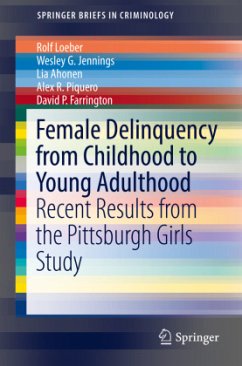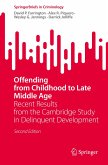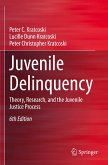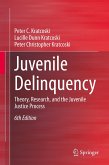This Brief fills a gap in criminological literature, as there are few empirically-based studies on delinquency of adolescent girls. It provides results of a longitudinal study, The Pittsburgh Girls Study (PGS), which includes 2,451 girls, followed annually from age 10-19, the ages when criminal behavior tends to emerge. This study provides the most extensive and comprehensive investigation into the criminal offending and self-reported trajectories of offending of PGS participants, along with an in-depth examination of other criminal career dimensions.
In five chapters, this short volume reviews the limited extent of girls' delinquency literature, presents data on girls' offending patterns (onset, persistence, specialization, and desistence), provides insights on gender differences by comparison with the Pittsburgh Youth Study, which focused on male offenders, and explores the theoretical and practical implications of the results.
By understanding the origins and onset of criminal behavior in girls, researchers can begin to understand effective interventions and crime prevention. This Brief will be of interest to researchers in criminology and criminal justice, as well as related fields such as sociology, public policy, and psychology.
In five chapters, this short volume reviews the limited extent of girls' delinquency literature, presents data on girls' offending patterns (onset, persistence, specialization, and desistence), provides insights on gender differences by comparison with the Pittsburgh Youth Study, which focused on male offenders, and explores the theoretical and practical implications of the results.
By understanding the origins and onset of criminal behavior in girls, researchers can begin to understand effective interventions and crime prevention. This Brief will be of interest to researchers in criminology and criminal justice, as well as related fields such as sociology, public policy, and psychology.








